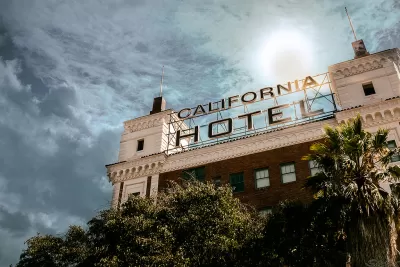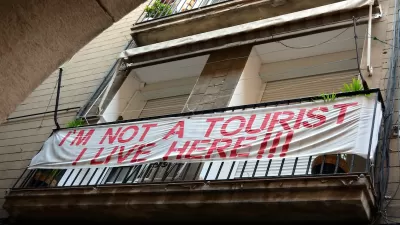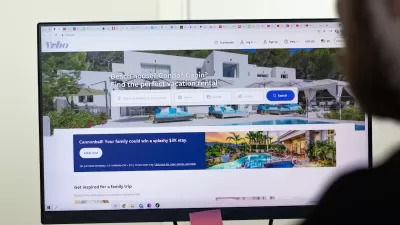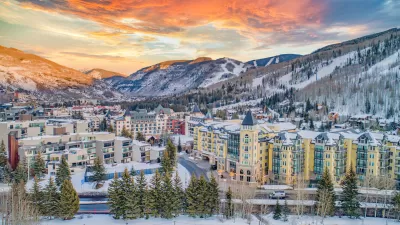The battles in New York and San Francisco have cities like Sacramento preparing for the growth of the home-sharing economy.

As Allen Young reports, the growing popularity of Airbnb in destination cities has "pitted landlords and other online home-sharing services against hotel unions, housing advocates and community groups." Anticipating a crackdown across the state, Airbnb reportedly approached Sacramento about reconsidering the legal terms surrounding short-term housing rentals. As in most cities, it is currently illegal in Sacramento to provide short-term lodging without a permit and without paying the same transient-occupancy taxes that conventional hotels pay. There are currently approximately 170 properties listed within the city, and more are expected as the sharing economy grows in popularity.
City officials first began considering writing rules around Airbnb use after the San Francisco-based company approached Sacramento to help legitimize its service," Young reports. The city's proposed cap on nightly stays was initially 30 days per year, relatively strict compared to cities like San Francisco and San Jose, with 90-day and 180-day caps, respectively. The purpose of a cap is to prevent landlords and homeowners from operating full-time hotels. Supporters of a cap argue that the proliferation of Airbnb rentals is reducing the availability of affordable housing in cities that are already struggling with soaring housing costs.
The proposal would likely include a transient-occupancy tax. Supporters argue that short-term renters should be required to pay the same taxes as other visitors who stay in hotels. According to their website, Airbnb collects local hotel taxes from renters in a limited number of cities that require it. In California, these include Oakland, San Francisco, Malibu, Palo Alto, San Diego, and San Jose. The local hotel tax in Sacramento is currently 12 percent.
FULL STORY: How Sacramento’s Airbnb proposal stacks up against other cities

Alabama: Trump Terminates Settlements for Black Communities Harmed By Raw Sewage
Trump deemed the landmark civil rights agreement “illegal DEI and environmental justice policy.”

Planetizen Federal Action Tracker
A weekly monitor of how Trump’s orders and actions are impacting planners and planning in America.

The 120 Year Old Tiny Home Villages That Sheltered San Francisco’s Earthquake Refugees
More than a century ago, San Francisco mobilized to house thousands of residents displaced by the 1906 earthquake. Could their strategy offer a model for the present?

BLM To Rescind Public Lands Rule
The change will downgrade conservation, once again putting federal land at risk for mining and other extractive uses.

Indy Neighborhood Group Builds Temporary Multi-Use Path
Community members, aided in part by funding from the city, repurposed a vehicle lane to create a protected bike and pedestrian path for the summer season.

Congestion Pricing Drops Holland Tunnel Delays by 65 Percent
New York City’s contentious tolling program has yielded improved traffic and roughly $100 million in revenue for the MTA.
Urban Design for Planners 1: Software Tools
This six-course series explores essential urban design concepts using open source software and equips planners with the tools they need to participate fully in the urban design process.
Planning for Universal Design
Learn the tools for implementing Universal Design in planning regulations.
Clanton & Associates, Inc.
Jessamine County Fiscal Court
Institute for Housing and Urban Development Studies (IHS)
City of Grandview
Harvard GSD Executive Education
Toledo-Lucas County Plan Commissions
Salt Lake City
NYU Wagner Graduate School of Public Service





























